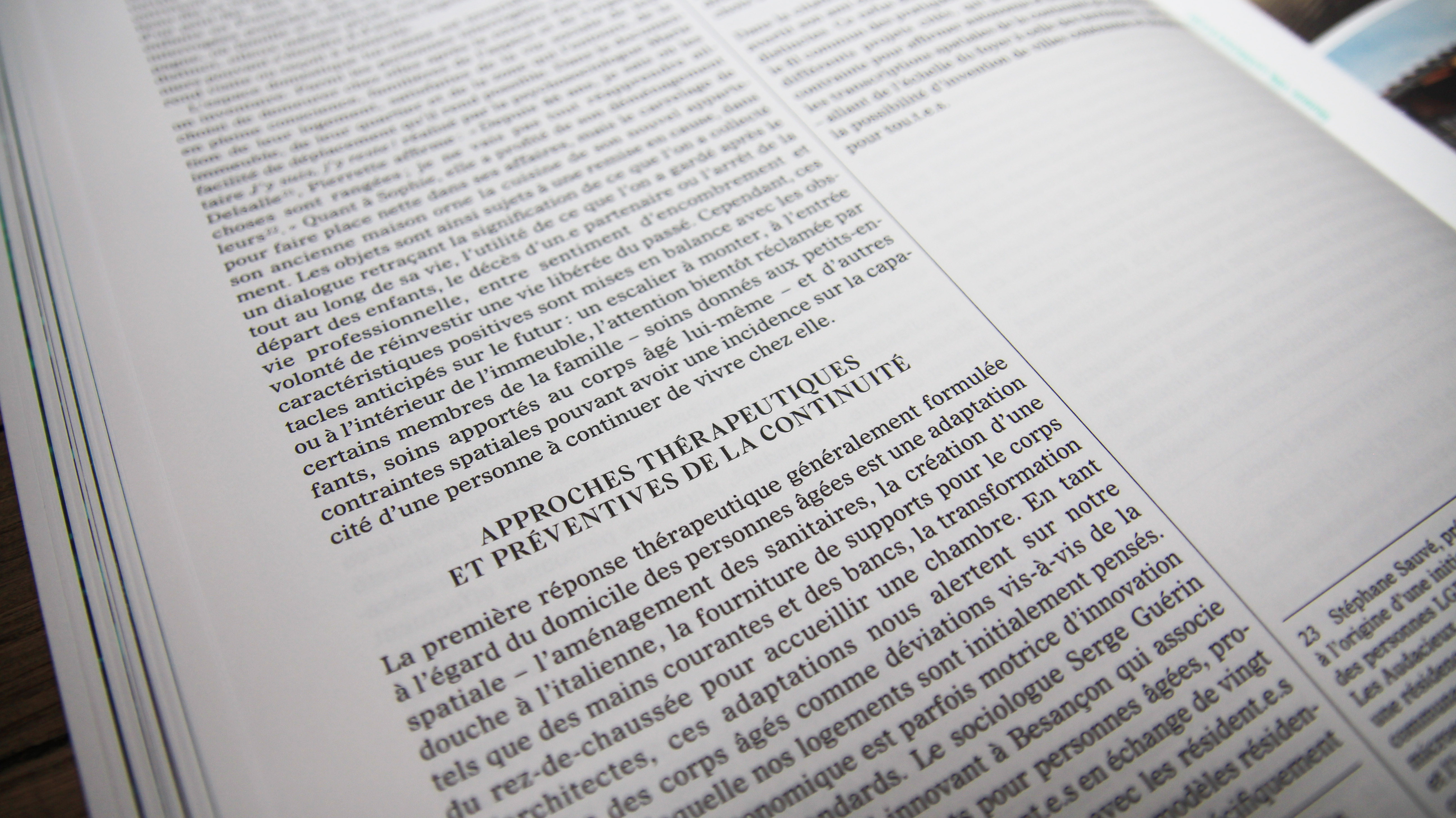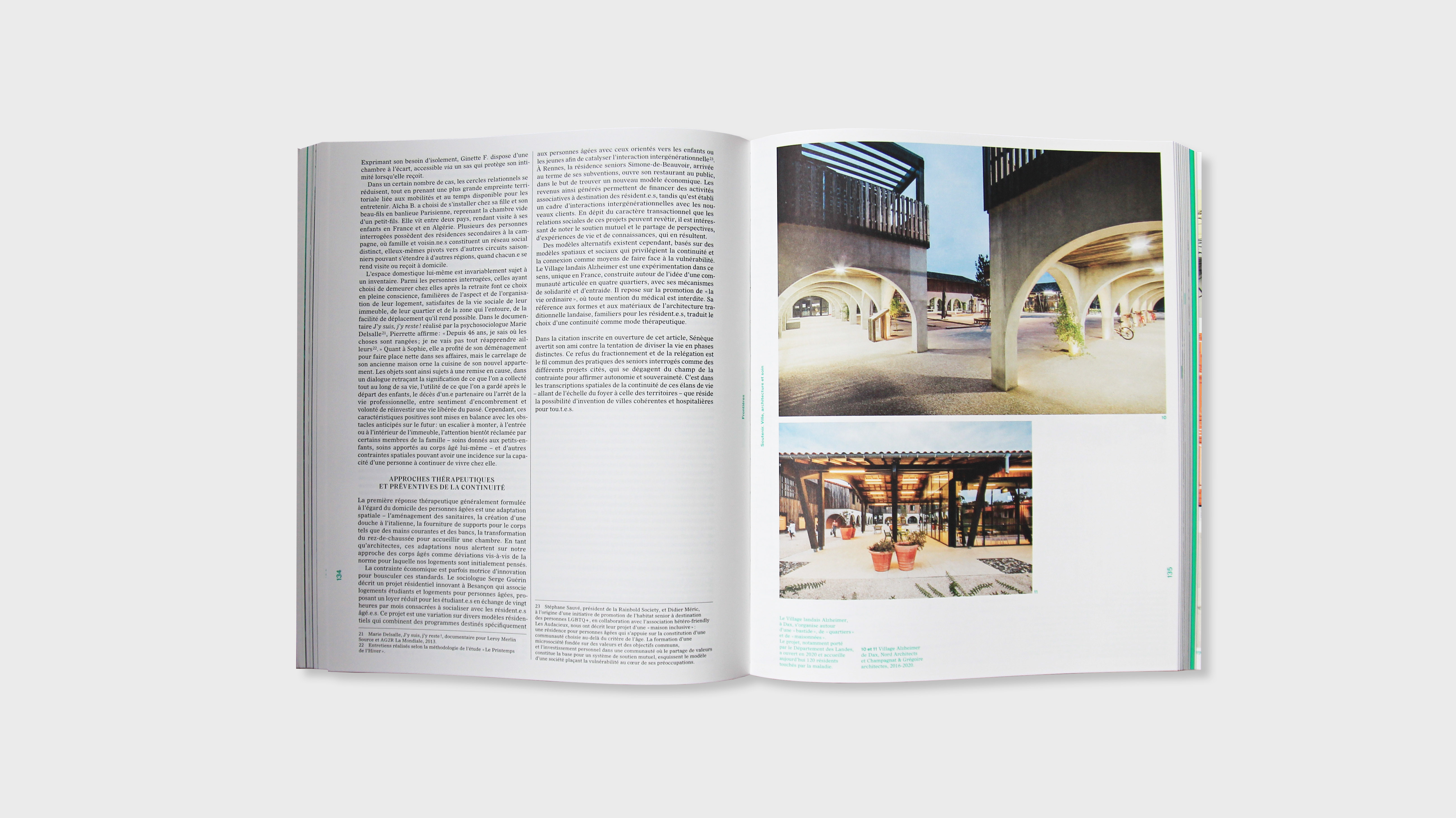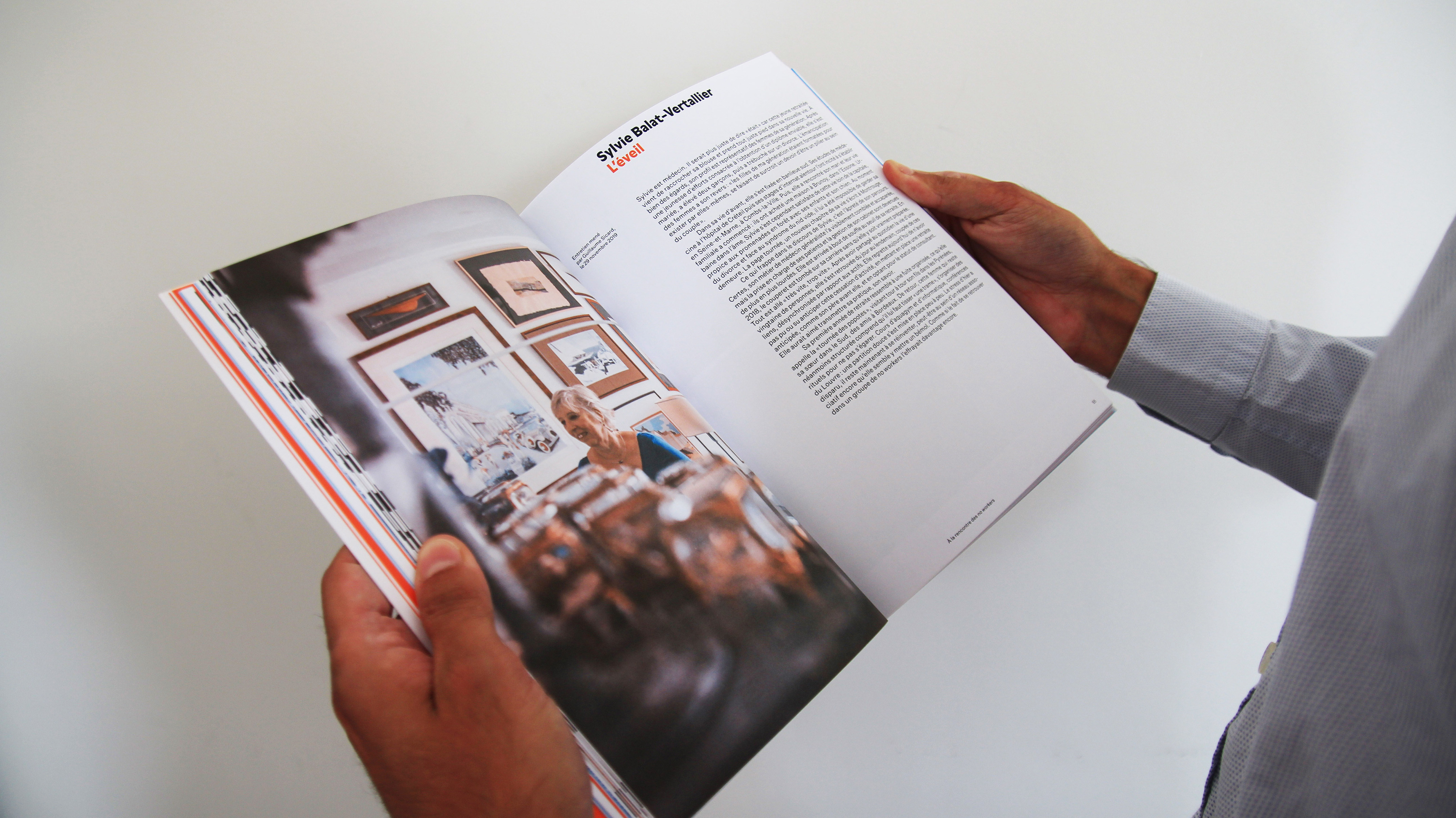Soutenir

For the catalogue of the exhibition “Soutenir : Ville, architecture et soin”, curated by SCAU and Cyntia Fleury at the Pavillon de l’Arsenal, 2022.
All bodies age, and the place we give to this reality is inherently architectural and urban. It is based on this hypothesis that we participated in the study “Le Printemps de l’Hiver”, focusing on the challenges of aging well in the city. The study includes a series of conversations with older adults, social science researchers, elected officials, and other individuals involved in commercial, associative, or public activities aimed at seniors.
These discussions have prompted us to reevaluate old age as a distinct phase of existence: since we all age, might we not replace the verb “to age” with “to live”? The vulnerabilities that may increase with age are not exclusive to seniors; they can emerge at any stage of life. Understanding that being elderly means experiencing human vulnerabilities with greater immediacy highlights the nature of human life as a continuum of vulnerability.

Thus, the notion of “living well” must accommodate vulnerability as a significant factor.
What emerges is the shared anticipation of an imminent but gradual vulnerability, marked by an awareness of increased dependence on others and the limitations imposed by so-called "normal" living environments. While this feeling can be a source of anxiety, it is always accompanied by the desire to continue living independently and to maintain an active social life connected to others.
This desire for continuity is a powerful mechanism for developing the capacities of vulnerable individuals, enabling them to become "capable" and to build their autonomy within vulnerability, interdependence, and mutual care.
In this contribution to the catalogue of the exhibition “Soutenir” at the Pavillon de l’Arsenal, curated by SCAU and Cynthia Fleury, we examine how our cities can support these aspirations for autonomy through the spatial practices of older adults.
